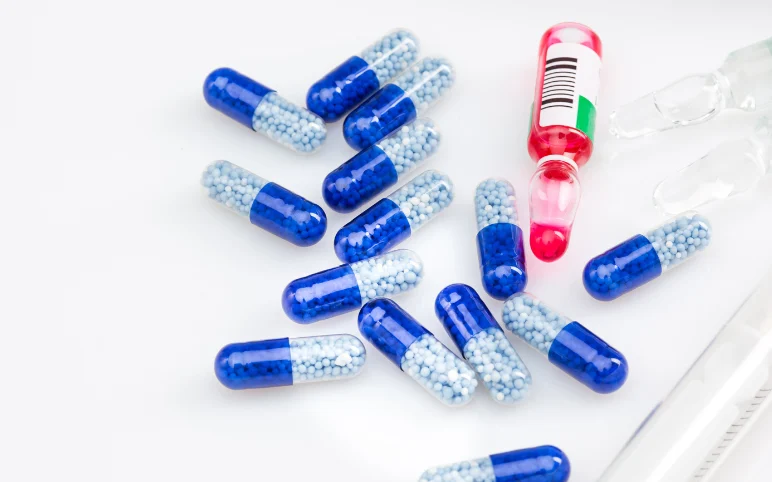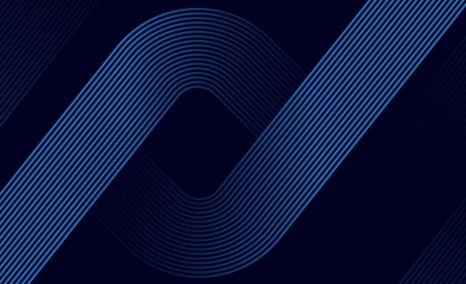Follicular Lymphoma Market Size Anticipates Growth as the Key Companies Explores Novel Therapeutics Assets
Sep 17, 2021
Follicular lymphoma, a sub-type of indolent B cell non-Hodgkin lymphoma (NHL), accounts for approximately 20% of the total NHL cases. It is the most frequently diagnosed indolent lymphoma. On average, each year, 15,000 new Follicular lymphoma cases are diagnosed in the US alone. DelveInsight estimated that in 2020 there were 35,737 prevalent cases of Follicular lymphoma in the 7MM, out of which the highest cases were in the United States.
The cancer is diagnosed on the basis of histology from the biopsy of a lymph node or affected tissues and cancer exhibits hallmark diagnostic features including in situ follicular neoplasia, diffuse growth patterns, marginal zone differentiation, blastoid features, and unusual phenotypes and genetic alterations; however, these remain widely undocumented.
It is cancer that is not curable; however, it can be managed with the help of radiation therapy, chemotherapy, anti-CD20 antibody therapies, radio immunotherapies, stem cell transplantation, and others. The treatment largely depends on the exhibited symptoms, the aggressiveness of the tumor, the age of the patient, and overall general health. As such, the Follicular lymphoma treatment market usually aims to relieve symptoms and delay relapse. Options available in the Follicular lymphoma therapy market include radiation (RT), immunochemotherapy (rituximab plus chemotherapy), Bendamustine with immunotherapy, CHOP (cyclophosphamide, doxorubicin, vincristine, prednisone) plus obinutuzumab or rituximab, CVP (cyclophosphamide, vincristine, prednisone) plus obinutuzumab or rituximab, immunochemotherapy plus radiation therapy, single-agent rituximab, and observation until progression.
Downloads
Click Here To Get the Article in PDF
Recent Articles
- ALLO-647 Integration in Lymphodepletion: Paving the Way for Enduring Responses and Safe CAR T cel...
- Pirtobrutinib Monotherapy: A Promising Beacon of Efficacy and Safety in Relapsed/Refractory Folli...
- GSK’s RSV Vaccine Clears Phase III Test in Adults; Roche’s Tecentriq for Adjuvant NSCLC; Owkin Ba...
- Novo Nordisk Gains US Approval for Oral WEGOVY; Windward Bio Strengthens Immunology Pipeline With...
- BeiGene’s BRUKINSA Gets FDA Accelerated Approval; GSK’s Positive Results in DREAMM-8 ...
In localized tumors of 1 lymphoma, radiation therapy is preferred in grades 1, 2, and 3a lymphomas. In contrast, patients with grade 3b FL are treated with aggressive regimens (such as R-CHOP) used for other aggressive lymphomas. Anti-CD20 antibodies (obinutuzumab, rituximab) are combined with chemotherapy regimens for the treatment of symptomatic advanced follicular lymphomas. The FL therapy market offers a combination of lenalidomide (Revlimid) and rituximab (Rituxan; R2) for adult patients with grade 1–3A previously treated FL. It is a new type of targeted cancer therapy for people with previously treated FL.
However, there are several demands and needs that remain unmet. Follicular lymphoma is heterogeneous mainly and most of the Follicular lymphoma patients already have had the tumor widespread in their bodies by the time they get diagnosed. Additionally, the biomarkers that are used in the diagnosis associated with or predictive of early progressive disease, early relapsing, or chemorefractory disease do not accurately yield outcomes. Further, Follicular lymphoma patients develop resistance to available therapies and there have been cases of relapses and eventually, patients become refractory to rituximab.
However, the recent approval of Gilead subsidiary Kite’s Yescarta from the US Food and Drug Administration (FDA) for indolent FL has painted quite an active and happening picture of the Follicular lymphoma market landscape. Now, Yescarta has become the first CAR-T cell therapy approved in this indication. Thus, it will not be wrong to say that the Follicular lymphoma therapy armamentarium is continually expanding, with numerous novel therapies attempting to exploit specific biological vulnerabilities of FL. As per DelveInsight analysis, the Follicular lymphoma market revenue was estimated to be USD 1,451 million in 2020, which is anticipated to increase further by 2030. Additionally, the USA accounted for approximately 54% of the total 7MM Follicular lymphoma market share, depicting a promising future outlook.
At present, pharma and biotech companies including Incyte Corporation, Bristol Myers Squibb, Nordic Nanovector, ADC Therapeutics, MorphoSys, Nordic Nanovector, Regeneron Pharmaceuticals, Novartis, MEI Pharma, BeiGene, Xynomic Pharma, TG Therapeutics, Roche, Takeda, and several others are exploring in the Follicular lymphoma market space. Currently, the Follicular lymphoma pipeline consists of several novel therapeutic agents in Phase II and III clinical trials. Primary FL pipeline therapies include parsaclisib (Incyte Corporation), Breyanzi (Bristol Myers), Betalutin (Nordic Nanovector), among others; and DelveInsight estimates that the launch of these drugs is expected to expand the Follicular lymphoma market size during the forecast period.
| Therapy | Company |
| Parsaclisib | Incyte Corporation |
| Breyanzi/JCAR017 | Bristol Myers |
| Zynlonta/Loncastuximab Tesirine/ ADCT-402 | ADC Therapeutics |
| Monjuvi/Tafasitamab | Incyte Corporation/MorphoSys |
| Imbruvica/Ibrutinib | AbbVie/Janssen Research & Development |
| Betalutin | Nordic Nanovector |
| Mosunetuzumab | Roche |
| Odronextamab/ REGN1979 | Regeneron Pharmaceuticals |
| Kymriah | Novartis |
| Zandelisib | MEI Pharma |
| Zanubrutinib | BeiGene |
| Abexinostat | Xynomic Pharma |
| Nivolumab/Opdivo | Bristol Myers Squibb |
| Ublituximab/TG-1101 | TG Therapeutics |
| Atezolizumab/Tecentriq | Hoffmann-La Roche |
| Ninlaro/Ixazomib | Takeda |
Undoubtedly, Chimeric antigen receptor (CAR) T-cell therapy has emerged as an exciting alternative treatment for the Follicular lymphoma patient population. With the recent approval of Yescarta for indolent follicular lymphoma and Kymirah (Novartis) and Breyanzi (BMS) in the pipeline, CAR T cells therapy appears to be a promising approach that is anticipated to capture the major chunk of the Follicular lymphoma market share. However, with the approaching patent expiry of available approved drugs such as lenalidomide, the generic versions of drugs are expected to soon hit the market, diminishing the growth quadrant. Even so, the emerging rich pipeline, increasing prevalence, exploration of gene and cell therapy for personalized therapy approach, and improved and validated prognostics methods for better identification of patients at the time of diagnosis is expected to enhance the Follicular lymphoma therapy market size growth.
Downloads
Article in PDF
Recent Articles
- ASH 2022: Preview of the Top Abstracts In the Follicular Lymphoma (FL) Therapeutics Market
- Diverse Pipeline Therapies to Glide the Follicular Lymphoma Treatment Market
- ALLO-647 Integration in Lymphodepletion: Paving the Way for Enduring Responses and Safe CAR T cel...
- Liso-cel Shines in TRANSCEND FL: Impressive Complete Responses, Durable Overall Responses, and Ma...
- Merck’s Gefapixant; Pfizer’s Somatrogon; Gilead’s Viklury; AbbVie’s Skyrizi; Gilead’s...




